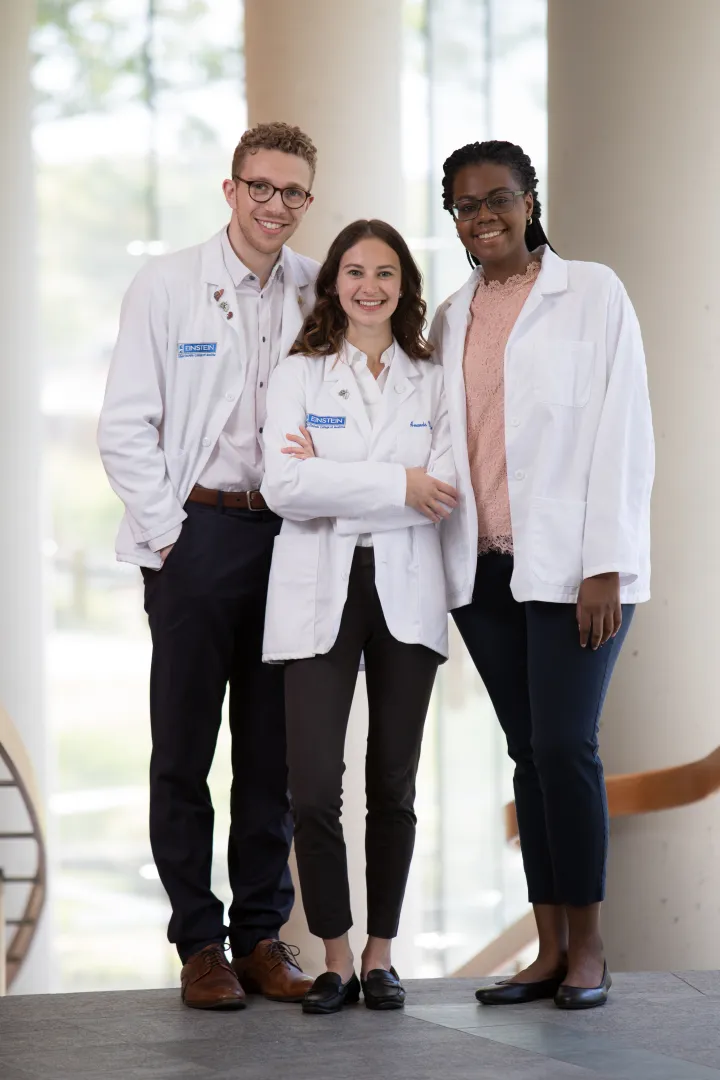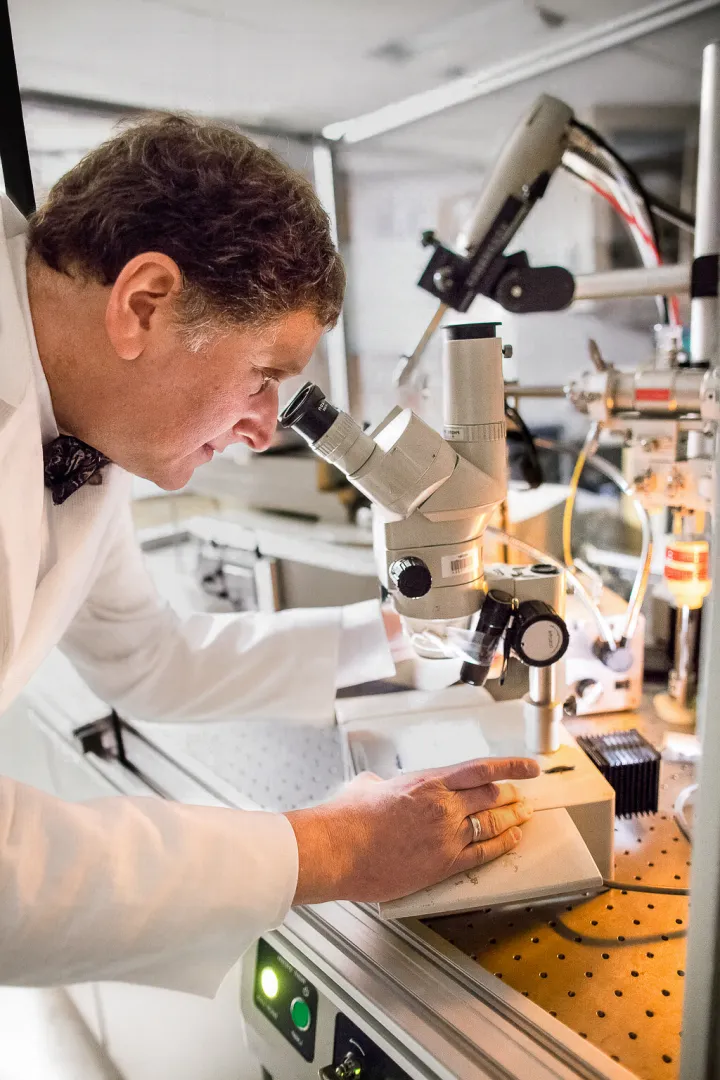Einstein's Vision. Our Mission.
For more than 70 years, Albert Einstein College of Medicine has been transforming science and medicine. As a premiere academic center for medical education, biomedical research, and clinical investigation, we prepare students to become knowledgeable, compassionate physicians, and pioneering scientific investigators.
Einstein’s 24 academic departments and 6 National Institutes of Health-designated research centers foster collaboration across disciplines to solve some of medicine’s most pressing challenges. From cancer and diabetes to aging and neuroscience, our 2,000 faculty members and more than 1,000 medical and graduate students and trainees drive innovation to improve the health of Bronx community, and people around the world.
Our long tradition of humanism in medicine began in 1953, when renowned scientist and humanitarian Albert Einstein agreed to lend his name to the first new medical school to be founded in New York City since 1897. We continue to be guided by his values and to pursue our mission to meet the healthcare needs of all individuals.

Innovating Medical & Science Education
Education is a cornerstone of Einstein’s commitment to shaping the future of health and science. As an innovative biomedical educational institution, our M.D., M.S., and Ph.D. programs ensure innovation and humanism are infused throughout our curriculum and student activities.
We are proud to offer every student enrolled in our M.D. program a David S. and Ruth L. Gottesman Scholarship that covers the cost of tuition. The goal is to remove barriers to pursuing a career in medicine and empowering our students to choose areas of study based on their interests rather than financial incentives.
Through our M.D. service-learning curriculum, we deepen our students’ understanding of community resources and the social and structural determinants of health. Partnering with more than 40 community-based organizations, our students forge strong relationships with the community we serve. At Montefiore Einstein, the Einstein Community Health Outreach (ECHO) Free Clinic, and several other affiliated hospital systems in New York, Einstein medical students train and care for a variety of patient populations, which provide experiences that broaden and enrich their medical education.
Our Ph.D. program provides outstanding graduate education and research training to prepare students to become independent scientists. Students are closely mentored by our internationally renowned faculty; receive personalized guidance in career paths that span science, medicine, industry, and academic leadership; and have opportunities to engage with local communities.
We also offer the M.D./Ph.D. program for the training of physician-scientists, through one of the nation’s premier Medical Scientist Training Programs, continuously funded by the National Institutes of Health since 1964. Master’s degrees in clinical research skills, bioethics, and public health provide additional opportunities for learning and growth for our students and faculty.

Advancing Excellence in Biomedical Research
From scientific discoveries made in the laboratory to practice-changing clinical trials, Einstein is an established leader in biomedical research. Our investigators have made scientific breakthroughs over the past seven decades in a range of areas, including Alzheimer’s disease and dementia, cancer, cardiovascular disease, diabetes, infectious diseases, genetics, genomics, and stem cell research.
Einstein faculty have founded the fields of neuroscience and neuroendocrinology, discovered the first “longevity genes,” determined how Ebola infects the cells, developed novel tests to detect wither breast cancer is likely to spread, and much more.
Einstein is known for our strongly collaborative and collegial research environment, resulting in unparalleled opportunities to develop productive partnerships within and across departments, through our more than 20 research institutes and centers, and with clinical colleagues at Montefiore Health System. Of note are our seven NIH-designated research centers, which demonstrate our strength in a range of areas:
- Montefiore Einstein Comprehensive Cancer Center
- Einstein-Rockefeller-CUNY-Mount Sinai Center for AIDS Research
- Diabetes Research Center
- Harold and Muriel Block Institute for Clinical and Translational Research at Einstein and Montefiore
- New York Regional Center for Diabetes Translation Research
- Rose F. Kennedy Intellectual and Developmental Disabilities Research Center
Our scientists have access to the latest technology in more than 40 shared facilities and scientific cores, advanced magnetic resonance spectroscopy at the Gruss Magnetic Resonance Research Center, and novel microscopy technologies at the Gruss Lipper Biophotonics Center.

Delivering World-Renowned Patient Care
At Montefiore Einstein, our clinicians provide compassionate, accessible, patient-centered care at more than 300 patient-care locations in New York City, Westchester, and the Hudson Valley. We care for patients with a broad range of medical conditions and provide advanced clinical care in specialties including cancer, diabetes and endocrinology, heart and vascular, neuroscience and neurosurgery, orthopedic surgery, pulmonary medicine and lung, rehabilitation medicine, and urology.

